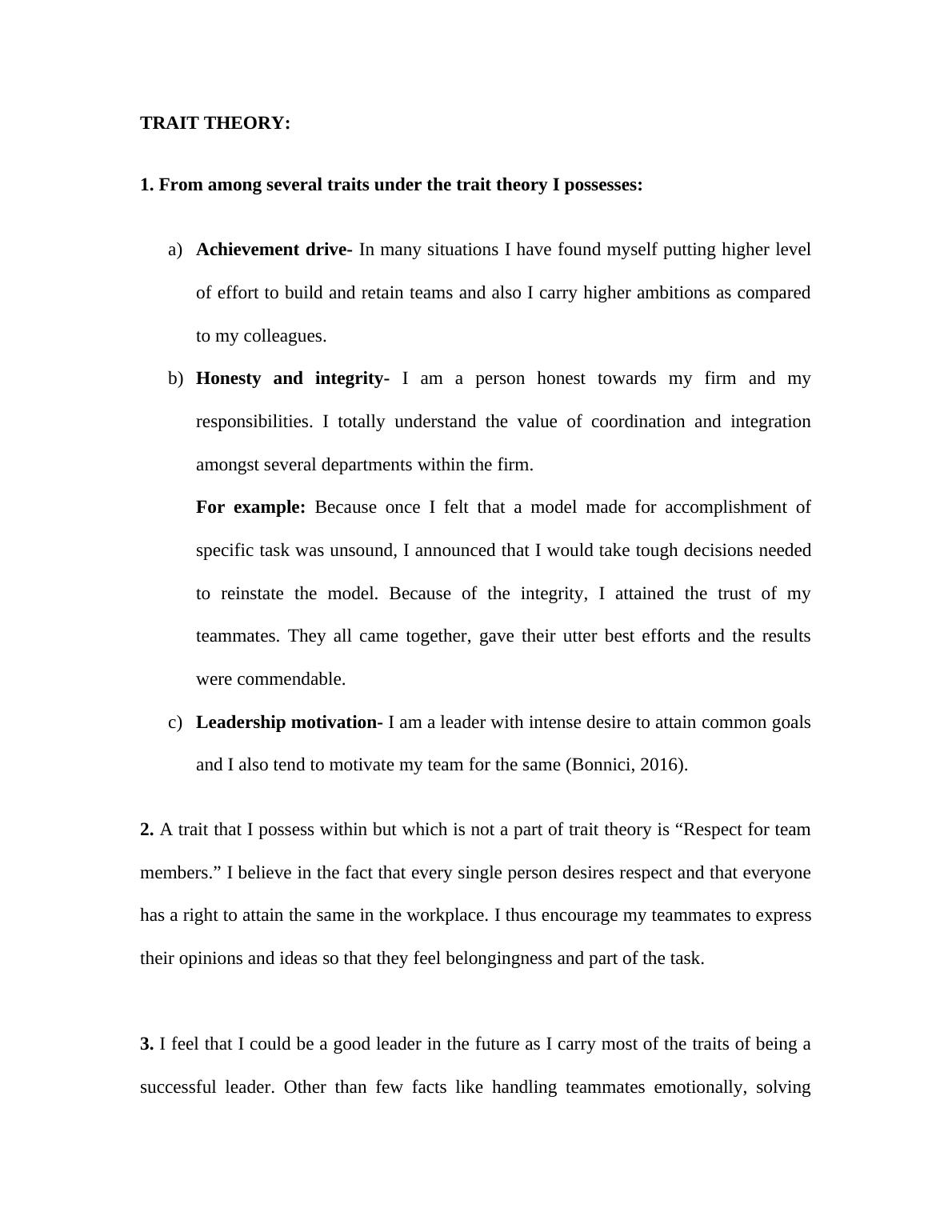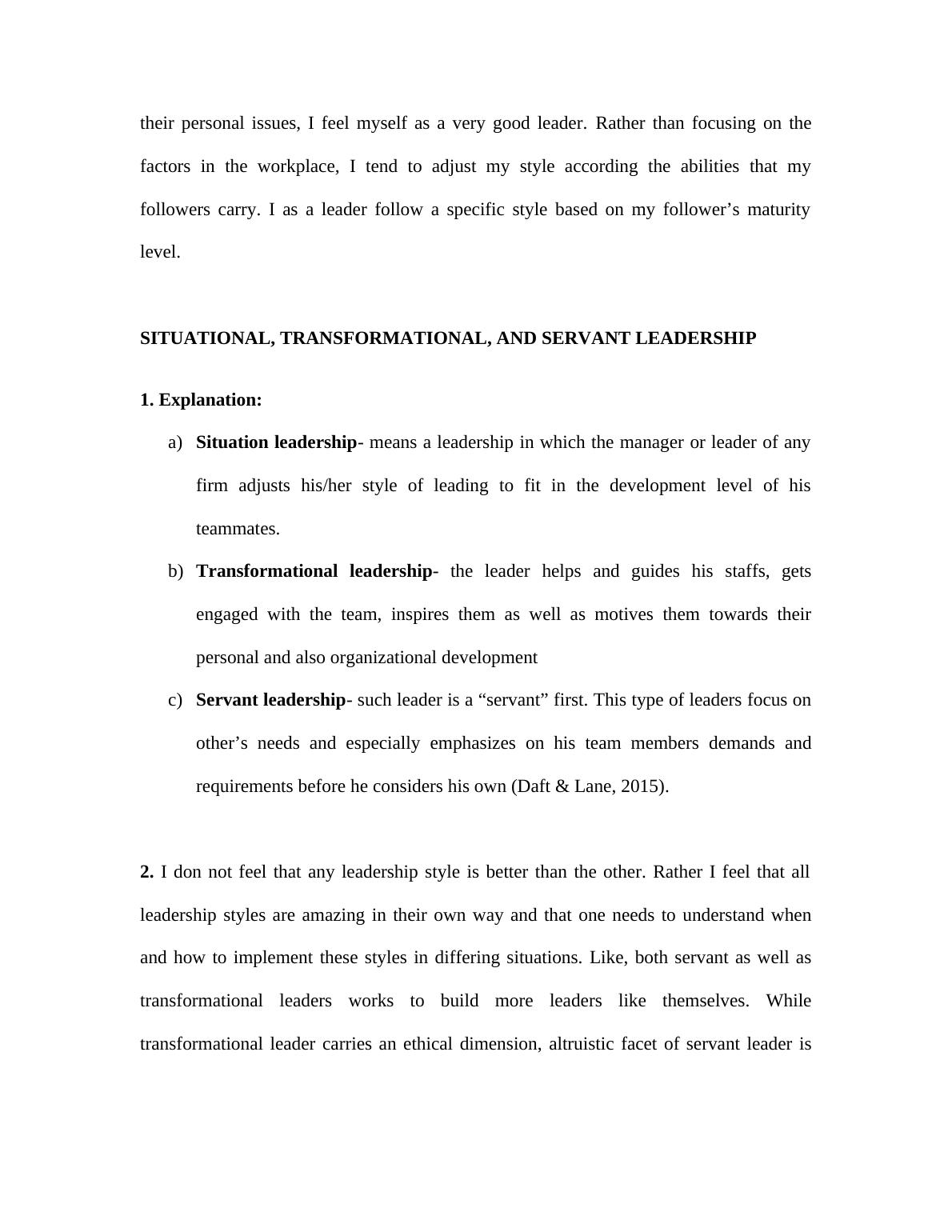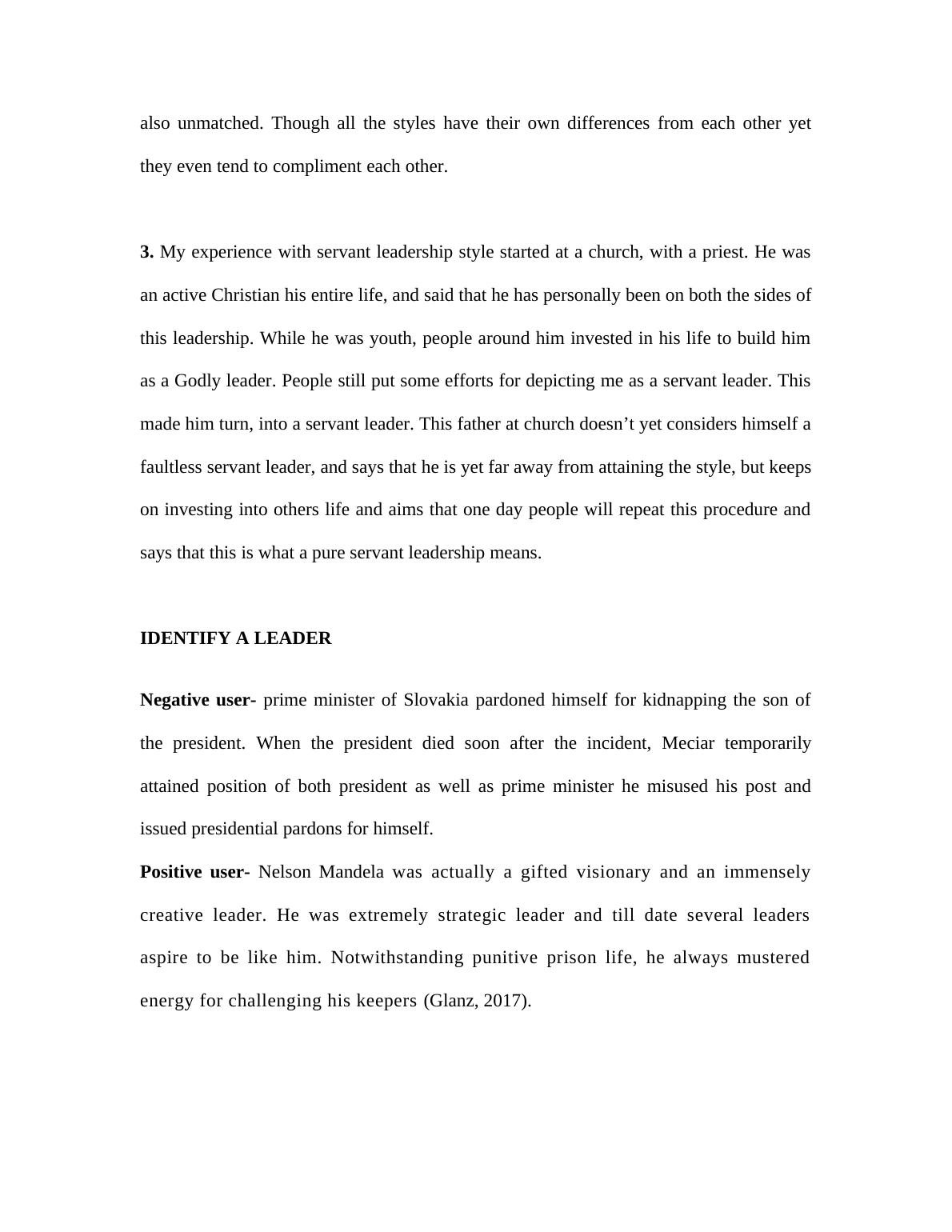Leadership Styles: Trait Theory, Situational, Transformational, and Servant Leadership
The objective of this assignment is to analyze and apply a variety of leadership approaches in order to connect theory to practical application.
12 Pages2241 Words371 Views
Added on 2023-03-29
About This Document
This document discusses various leadership styles including trait theory, situational leadership, transformational leadership, and servant leadership. It explores the characteristics of each style and provides examples of their application in different situations. The document also includes personal leadership profiles and scenarios that demonstrate the use of different leadership models.
Leadership Styles: Trait Theory, Situational, Transformational, and Servant Leadership
The objective of this assignment is to analyze and apply a variety of leadership approaches in order to connect theory to practical application.
Added on 2023-03-29
ShareRelated Documents
End of preview
Want to access all the pages? Upload your documents or become a member.
Leadership Management Assignment on Trait Theory, Situational, Transformational and Servant Leadership
|9
|2097
|464
What is purpose of understand a concept
|8
|2035
|15
Leadership in Business
|11
|2148
|188
Introduction to Management: Traits of Effective Leaders and Leadership Theories
|12
|2657
|84
Leadership - Trait Theory | Assignment
|12
|2759
|18
Introduction to Management: Exploring Leadership, Skills, and Styles
|9
|2254
|192




